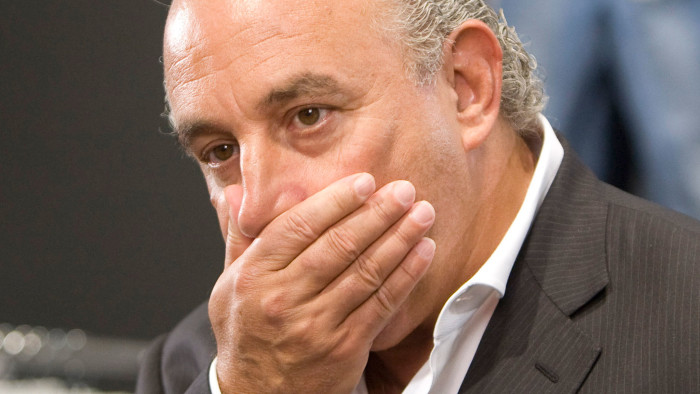Age of authenticity redraws the rules on public gaffes

Roula Khalaf, Editor of the FT, selects her favourite stories in this weekly newsletter.
When Gerald Ratner stood up to speak at an Institute of Directors event in 1991, he was probably anticipating indulgent laughter from his audience of fellow business leaders. Little did he realise that admitting — boasting — that the jewellery and homewares his chain of shops was selling at suspiciously low prices was “total crap” would make his name an eternal byword for commercially disastrous gaffes.
The original and best example of “doing a Ratner” is still jaw-dropping: Mr Ratner, chief executive at the time, went on to quip that earrings for sale at his eponymous stores were “cheaper than an M&S prawn sandwich but probably wouldn’t last as long”.
The joke was on him when £500m was wiped off the value of the company that his father had nurtured, £1bn was lost in sales and he was fired the next year by the company chairman.
Straining to avoid blunders that can destroy a company and a career, business leaders have relied to varying degrees on the advice of communications experts, who are often drawn from the ranks of former journalists.
Traditional advice is still valuable, say such experts — preparing for interviews, training to be at ease on live broadcasts or under tough questioning and honing the messages you want to project. But the problem for a business leader has changed in this more complex digital age, even if the idea of a figurehead communicating the values and delivering the messages for a company or organisation has survived.
“Audiences are looking for someone who is not papering over the cracks — you have to respect the audience’s knowledge,” warns George Pascoe-Watson. A former political editor of The Sun newspaper, he works at Portland Communications, a London-based agency.
In an era where trust is easily lost — companies’ reputations are potentially undermined daily by disgruntled customers on Twitter, for instance — he argues that “what people want from a leader is authenticity. They need that leader to tell a story that makes sense and feels true.”
Many would argue that Mr Ratner’s mistake was to speak the truth — classic gaffes are moments when the mask slips. Communications advisers argue, however, that it would be far more difficult today to maintain the type of false personal and company image that he disastrously punctured with his speech.
Alastair Campbell, strategy and communications chief to former UK prime minister Tony Blair, and now also working for Portland, alludes to the core of much contemporary advice to leaders on handling media, when he writes on its website: “It is no longer possible, if ever it was, to control what people say and think about you.” Instead, he says, “recognise that you can only control what you say and do yourself”. If your business or you are trying to hide something, then look out.
Tari Lang, a reputation risk adviser with experience of how business leaders interact with the media in different regions of the world, agrees. In democracies in the late-1990s and early 2000s, she argues, business leaders seemed overconfident that the right advice and personnel could deliver ideal and idealising media coverage. They were taking their cue from the apogee of spin in the political world.
The new prizing of authenticity, however, makes the issue of substance as important to communication as a well-prepared performance on a high-profile television or radio show.
“First, look at the list of things you need to fix,” Ms Lang advises. “Then, media strategy needs to be at the end of that process.”
Business leaders’ nervousness about being questioned by journalists, she believes, is explained by sheer unfamiliarity — with the media perceived as an alien world with different rules — or even an aversion to criticism by powerful individuals that verges on the narcissistic. Leaders should be given the same advice as budding actors, Ms Lang says: do not put too much store by either good or bad reviews.
Mr Pascoe-Watson suggests that ego and force of character can be put to good use if things go wrong: “You can actually make use of a big personality to explain how the problem is going to be fixed.”
The emphasis on “keeping it real” has its downsides, however, even without a Ratner-style bout of oversharing, Ms Lang argues.
A chief executive or senior business leader whose behaviour is naturally bullying, abrasive and macho is liable to discover that aggression towards reporters and interviewers that served their purposes on the way up becomes a way of ensuring terrible headlines on the way down. Think of a Sir Philip Green or a Dominic Chappell and the publicity for recent scandals relating to the collapse of BHS.
“They are so used to getting their way in business that they think ‘why should I be nicer?’” says Ms Lang. “But the problem with that is that when you fall, people will dance on your grave.”
Comments